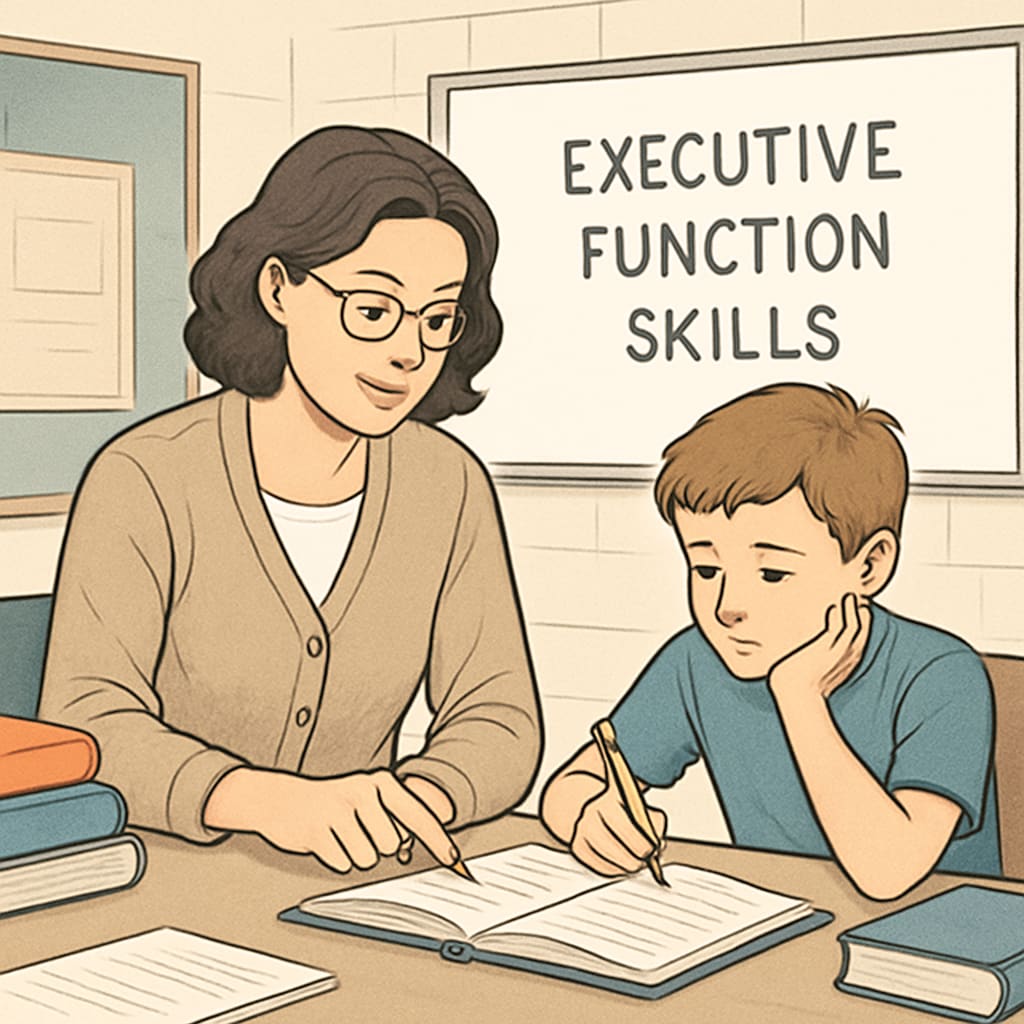Understanding and addressing executive function, ADHD, and parent guidance has never been more critical for families of children with special needs. The Executive Function Online Summit (TEFOS) stands as a beacon of hope, offering a wealth of resources to empower parents navigating the complexities of executive function challenges in children with ADHD, autism, and other developmental needs. By focusing on tailored strategies and equipping caregivers with practical tools, this summit transforms obstacles into stepping stones for growth and independence.
What Are Executive Function Challenges?
Executive function refers to the set of cognitive processes that help individuals manage their thoughts, behaviors, and emotions to achieve goals. These skills include working memory, flexible thinking, and self-control. For children with ADHD or autism, deficits in executive function can manifest as difficulties in organizing tasks, managing time, or regulating emotions.
For example, a child with ADHD may struggle to complete homework assignments due to poor time management, while a child with autism may find it challenging to adapt to changes in routine. These challenges often lead to frustration for both the child and their caregivers, making effective strategies essential.

Empowering Parents Through Education
The foundation of addressing executive function challenges lies in educating parents. TEFOS provides a platform where parents can learn from experts in child development, psychology, and education. The summit emphasizes that when parents understand the “why” behind their child’s behavior, they are better equipped to implement supportive interventions.
Some key strategies taught during the summit include:
- Breaking tasks into smaller, manageable steps to reduce overwhelm.
- Using visual aids, such as charts or timers, to help with planning and organization.
- Encouraging self-regulation techniques, such as deep breathing or mindfulness exercises.
- Collaborating with educators to create individualized learning plans.
By integrating these strategies into daily routines, parents can foster an environment that nurtures their child’s growth and independence.
Turning Challenges into Opportunities
While executive function difficulties can pose significant hurdles, they also present opportunities for growth. One of the key messages of TEFOS is that challenges are not insurmountable; with the right approach, children can develop resilience and problem-solving skills that will serve them throughout their lives.
For instance, teaching a child to use a planner not only helps them stay organized but also builds their ability to plan ahead—a skill that will benefit them in adulthood. Similarly, fostering emotional regulation through consistent practice can improve relationships and overall well-being.

The Role of Community and Support Systems
Parenting a child with special needs can feel isolating, but TEFOS emphasizes the power of community. Connecting with other parents who face similar challenges provides a sense of solidarity and a platform for sharing experiences and resources.
Moreover, the summit highlights the importance of building a robust support system that includes educators, therapists, and extended family members. This collaborative approach ensures that the child receives consistent support across all environments.
External resources such as the Executive Function Wikipedia page and ADHD overview on Britannica offer additional insights for parents seeking to deepen their understanding of these topics.
Conclusion: A Path Toward Independence
Addressing executive function, ADHD, and parent guidance is not just about managing challenges; it’s about building a foundation for lifelong success. Through initiatives like TEFOS, parents are empowered with the knowledge and tools to help their children thrive. With patience, persistence, and the right strategies, families can transform struggles into stepping stones, enabling their children to achieve their fullest potential.
As the saying goes, “It takes a village to raise a child.” By working together and leveraging the resources available, parents can ensure that their children are not defined by their challenges but by their ability to overcome them.


